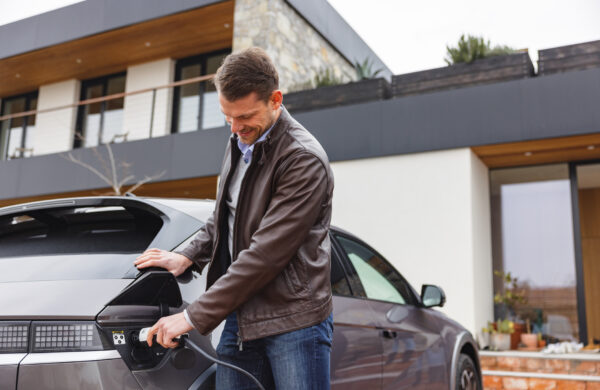Embarking on the journey of hybrid car ownership can bring numerous benefits, from environmental sustainability to fuel efficiency. However, it also introduces new considerations in the realm of car insurance, where premiums for these innovative vehicles may diverge from those of traditional gas-powered cars. This article helps demystify the premium difference, zeroes in on several of the determining factors for hybrid insurance rates and offers a guide toward potential savings.
Understanding Hybrid Car Insurance Rates
When considering hybrid car insurance, you might question how these auto insurance premiums differ from those of gasoline-only vehicles. It turns out, similar factors are at play, but with a twist. Hybrid cars, with their eco-conscious design and innovative technology, generally come with a premium: according to Forbes, hybrids cost approximately six percent more, on average, to insure than gas-only cars. This revelation could raise eyebrows, but let’s peel back the layers to understand why.
Hybrid car insurance rates are not arbitrary figures plucked from the air. They are carefully calculated, taking into account the following factors:
- The vehicle’s value
- Repair costs
- Safety features
- Driver behavior
These factors all intertwine to influence the final figure. We’ll examine these factors individually to understand the reasons behind the typically higher insurance premiums for hybrids.
Vehicle Value
The sticker price on a hybrid vehicle often eclipses that of a traditional gas-powered car. This higher purchase price can be a direct result of the advanced features designed to enhance performance, safety and convenience. Insurance companies don’t ignore this; they recognize that a more expensive car could potentially lead to higher payouts in case of an insurance claim. Consequently, auto insurance rates are typically correlated with the vehicle’s value, thus raising the bar for insurance costs.
In the fast-paced automotive industry, hybrids can stand out for their fuel efficiency and cutting-edge technology. Yet, this progress comes with a price tag, and as such, owning an eco-friendly vehicle may mean paying more for insurance coverage. Now, let’s look at how repair costs can influence hybrid car insurance rates.
Repair Costs
When a hybrid car needs a repair, the bill might give you a bit of sticker shock. The advanced technology and specialized components under the hood, like the battery systems, can be more costly than those in gas vehicles. And when it comes to fixing them, not just any mechanic will do—the need for specialists can drive labor costs up, which can add to the total cost of repair expenses. It’s no surprise then that insurance companies take note of these higher repair costs, which can translate into heftier insurance premiums for hybrid car owners.
Safety Features
Hybrids are often at the forefront of vehicular safety, equipped with the latest collision detection systems and lane departure warnings. Insurance companies may view these technological advancements as reducing the risk of accidents, which could translate to lower insurance premiums.
Furthermore, in the unfortunate event of an accident, these safety features may help mitigate damages, which could potentially ease the financial burden on insurance companies. This benefit may trickle down to you, the driver, in the form of reduced insurance costs. Next, we’ll examine another significant element that can influence your insurance rates: your driving habits.
Driver Behavior
Consider the typical hybrid driver, gliding through city streets and highways, often covering more miles than the average driver to maximize fuel efficiency savings. This increased mileage, while kind on the wallet at the pump, may catch the eye of insurance providers. The logic is straightforward: the more you’re on the road, the higher the chances of encountering a mishap. Consequently, those who drive their hybrids long distances might see this reflected in their higher insurance premiums.
But it’s not just about distance. Your driving history, any past traffic violations and even your age could play roles in how insurance companies assess risk and determine your premiums. With this in mind, let’s compare the insurance costs between hybrids and their gas-powered cousins to see how they stack up.
Hybrid vs. Gas-Powered Car Insurance: A Cost Comparison
It’s a question on the minds of many prospective hybrid owners: How might insuring a hybrid compare to a traditional gas-powered vehicle? Hybrid car drivers may face insurance costs that are higher than their gas-powered counterparts, potentially due to factors such as the higher cost of repairing or replacing hybrid-specific components.
The reasons behind this price gap can be complex and multifaceted, varying based on make, model and year of the vehicle. Yet, understanding these differences can be crucial for making an informed decision about your next car purchase. Let’s investigate the elements that could contribute to price differences in car insurance coverage.
The Price Gap
Your particular hybrid model determines a lot when it comes to insurance costs. Hybrid car insurance is not just a flat rate across the board—factors like the make, model and year of your hybrid can swing it up or down. Understanding hybrid cars’ cost and their impact on insurance premiums can be crucial in making an informed decision and balancing the benefits of cutting-edge hybrid technology and the associated costs, including those for insurance.
Factors Affecting the Difference
So what’s behind the higher insurance costs for hybrids? It’s a combination of factors, including those slightly higher repair costs we touched on earlier, which are due to the advanced technology and specialized components hybrids boast. Because of this, the average damage claim for hybrids is often higher than for non-hybrids, which influences risk assessment and premium pricing.
But it’s not all one-sided. The advanced safety features that come standard on many hybrids may work in your favor by potentially offsetting some of the cost increases. While you may pay more upfront due to the specialized repair services and higher claims, the safety technology could balance the scales to some extent.
Tips for Lowering Hybrid Car Insurance Costs
Wondering how you can keep more money in your pocket while insuring your hybrid? Here are a few tips:
- Check to see if you’re eligible for low annual mileage discounts if you’re not racking up high mileage.
- Bundling your hybrid insurance with other policies, like homeowners’ or boat insurance, may help unlock multi-policy discounts.
- Remember to inform your insurer about your hybrid’s safety features, as this knowledge may translate to lower premiums.
- Practice safe driving habits and maintain a good driving record.
- Work with an insurance broker who can do the quote shopping and leverage their insurance carrier relationships to help you secure the best possible coverage.
Hybrid Car Insurance Discounts and Incentives
An additional way that hybrid drivers may find a beacon of savings is in the form of a hybrid car insurance discount. Some insurers may look favorably upon the eco-friendly nature of hybrids and offer discounts for their reduced environmental impact. Additionally, the safety features that are par for the course with hybrids might also lead to premium reductions. Some potential discounts and incentives for hybrid drivers include:
- Reduced rates for driving a hybrid vehicle
- Discounts for eco-friendly driving habits
- Savings for having safety features such as anti-lock brakes and airbags
Hybrid Car Insurance Coverage Options
Hybrid car owners may expect the same standard coverage options as those driving traditional cars, including liability, collision and comprehensive insurance policies. These options can provide a strong foundation of protection for your vehicle, but there’s much more to consider when it comes to insuring your hybrid. Some insurers may offer specialized coverage that caters to the unique aspects of hybrid technology, like the costly hybrid battery, that could provide protection if replacement becomes necessary.
Given the unique powertrain systems that define hybrids, combining electric motors with traditional engines, some insurers may have developed specialized mechanical breakdown insurance programs to cover these components. This specialized coverage may also extend to the charger system, inverter and other proprietary parts of your hybrid vehicle. Speak to your insurance broker if you’re interested in securing these more specialized coverages.
Specialized Hybrid Coverage
When considering insurance for your hybrid, it’s worth looking into specialized coverage that extends beyond standard policies. This specialized coverage may include protection for the electric motor and battery pack—both essential and high-cost parts of your vehicle. Additionally, it may cover damages or theft at public charging stations, an increasing concern for many hybrid drivers.
Some insurers may offer original equipment manufacturer (OEM) parts replacement and access to a network of repair shops that are familiar with hybrid technology. Receiving proper care for your hybrid’s advanced systems could help in the event of an issue, along with maintaining your hybrid vehicle’s performance and value.
Toward a Greener Horizon
We’ve traveled the road of hybrid car insurance together, exploring the various factors that could influence costs, from vehicle value to repair costs and the available discounts and incentives. Remember, the key to making the most of your hybrid car insurance is to stay informed, ask questions and seek guidance from your insurance broker to help you select the right coverage. Talk to one of Higginbotham’s auto insurance specialists today and let’s start a conversation that will help put you in the driver’s seat of your hybrid car insurance needs.






